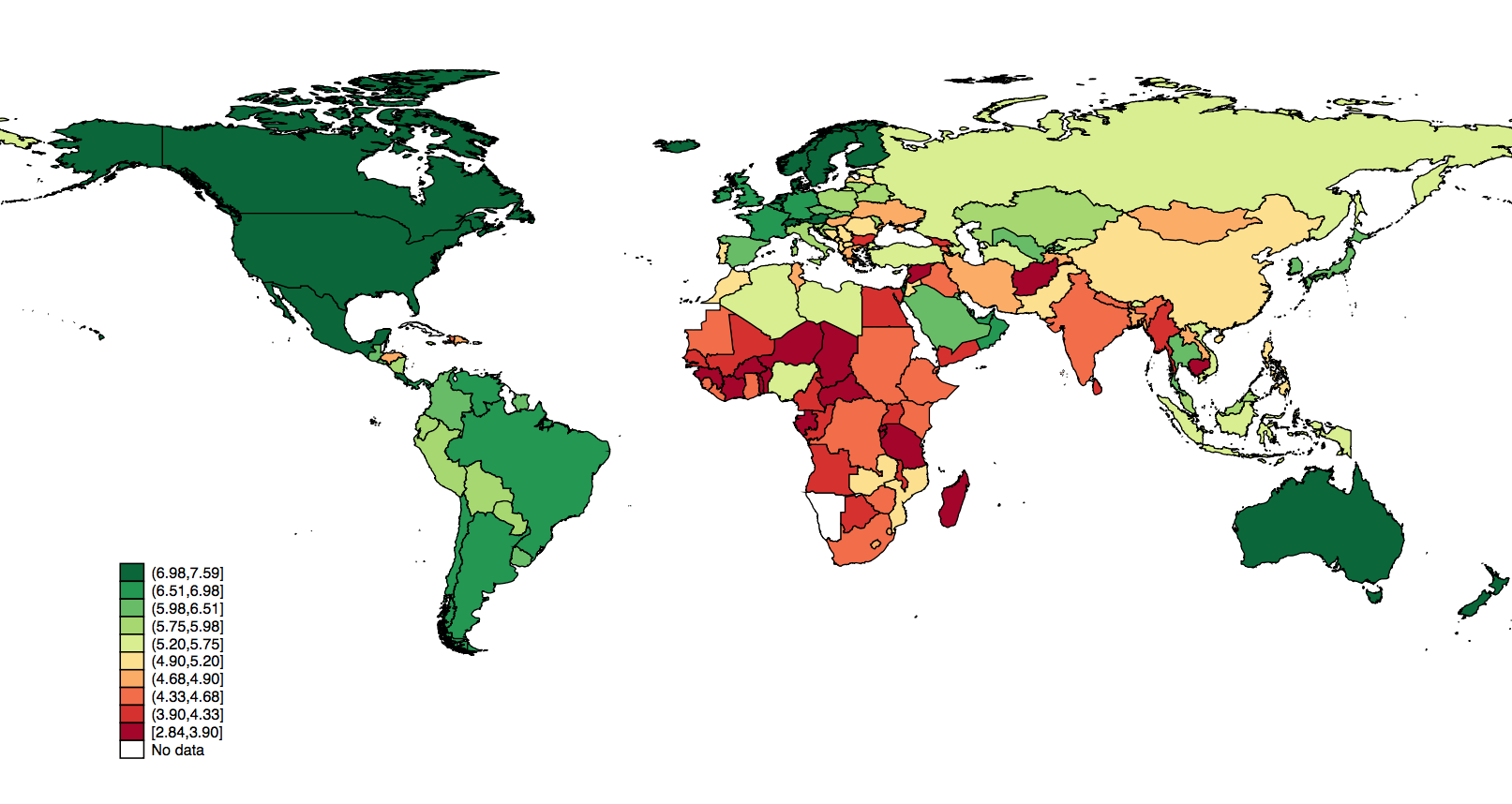If there’s any good to come out of US president Donald Trump’s reported description of many African countries as “shitholes”, it will be to focus a little more attention on nations that often get none.
Whether or not these countries deserve to be called shitholes, most are hardly paradises. The past 40 years have seen many development stories, from China to India to Chile. Almost none of those stories have happened in Africa.
If you want a summary of Africa’s failures, take a look at the latest World Happiness Report, released earlier this month. It tries to assess objectively, through a mix of official national statistics and polling data, where people are happiest on average. The picture is, well, kind of shitty.
Measuring happiness
Economists and other policy experts differ over how to measure happiness, especially national happiness, and over what the data means. There’s an argument that traditional material ‘progress’ fails to bring happiness – call it the ‘poor but happy’ story. Some measures of subjective wellbeing, as the report notes, have painted quite poor African countries like Nigeria and Ghana as pretty satisfied places.
The UN assessment suggests the opposite – that conventional ‘human development’ is what reliably brings happiness. Countries where people can pursue their educational and work interests, conduct business and not have to worry about starvation or disease are generally cheerier places to live in. North America, Australasia and Scandinavia are the world’s happiest places of all. (Norway tops the world rankings, Australia is equal ninth, and the US is 19th.)
The happiness map
Happiest countries in green, unhappiest countries in red

In contrast, work for the UN puts four out of five African countries below the mid-point of the happiness ladder. There are other deeply unhappy nations, Afghanistan, Syria, Georgia, Burma and Laos high among them. And Africa is not one place; it is a huge, diverse continent of 1.22 billion people, and it includes places like Algeria that are doing pretty well.
But on the map of happiness, Africa stands out. A huge number of its nations rank near the bottom of the happiness ladder, among them the Central African Republic, Burundi, Tanzania, Rwanda, Togo, Guinea, Liberia, South Sudan and Madagascar. These are the African nations in dark red on the map above.
Why is Africa in such a state?
What matters for happiness
Three-quarters of the differences among countries, and also among regions, are accounted for by differences in six key variables, each of which digs into a different aspect of life.
These six factors are:
- GDP per capita;
- healthy years of life expectancy;
- social support (as measured by having someone to count on in times of trouble);
- trust (as measured by a perceived absence of corruption in government and business);
- perceived freedom to make life decisions; and
- generosity (as measured by recent donations).
The top ten countries [including Australia] rank highly on all six of these factors.
The third liberation and beyond
The UN report argues that Africa has gone through two separate liberations in the past 70 years. The first was the liberation from European colonial powers that happened in the 1950s and 1960s. The second was the liberation of many African countries from authoritarian rule and the return of (rather fragile) democracies.
The third, says the report, should be a revival of good governance – effective governments, with low levels of corruption, which citizens find worth trusting and that can help build basic infrastructure (for water, sewage and electricity) and reduce poverty.
But good government cannot be the whole story. Even Botswana, an island of clean and prudent government in a sea of administrative corruption, its economy buttressed by diamond mining, ranks low on the happiness index.
Among the other sources of African misery are youth unemployment, a legacy of high fertility rates up to the 1980s; AIDS, which ravaged many nations in the early 2000s; and drought, possibly already accentuated by climate change, which has put pressure on agriculture and the natural environment.
Waiting for a better future
“People in many African countries are still waiting for changes to improve their lives and to make them happy,” concludes the World Happiness Report. Many of the best and brightest are emigrating; Nigerian emigrants to the US, for instance, are actually some of the best-educated on the planet.
But the report notes that the people of many African nations remain exceptionally optimistic. They believe things will get better. At some point in the coming decades, they will surely find a way to make it happen.







